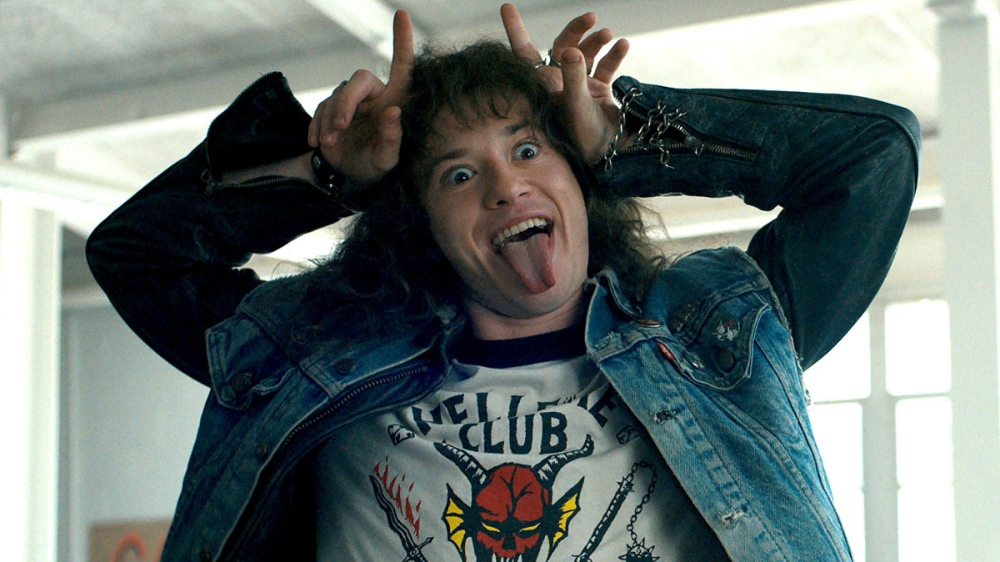
David Klotz is hitting all the right notes as a Music Editor, having won seven Emmy Awards and been nominated for 12 more. He worked on Christopher Nolan‘s Memento, while his many TV credits include American Crime Story, Buffy the Vampire Slayer, Game of Thrones, Glee, Scream Queens, and Stranger Things, the latter of which has brought him his latest Emmy nod in the category of Outstanding Sound Editing for a Comedy or Drama Series (One-Hour).
Klotz is nominated for his work on “Chapter Seven: The Massacre At Hawkins Lab,” which found Hopper (David Harbour) preparing to battle a monster, Eleven (Millie Bobby Brown) finding strength in a distant memory, and Dustin (Gaten Matarazzo) dissecting Vecna’s motives, decoding a message from beyond in the process.
Below the Line recently caught up with Klotz via Zoom for an extensive conversation about his early love of music, his take on the role of music in movies and TV shows, the challenges presented by the music-heavy juggernaut that is Stranger Things, and his upcoming project, which may be even bigger — the Game of Thrones prequel House of the Dragon, which premieres on HBO on Aug 21.
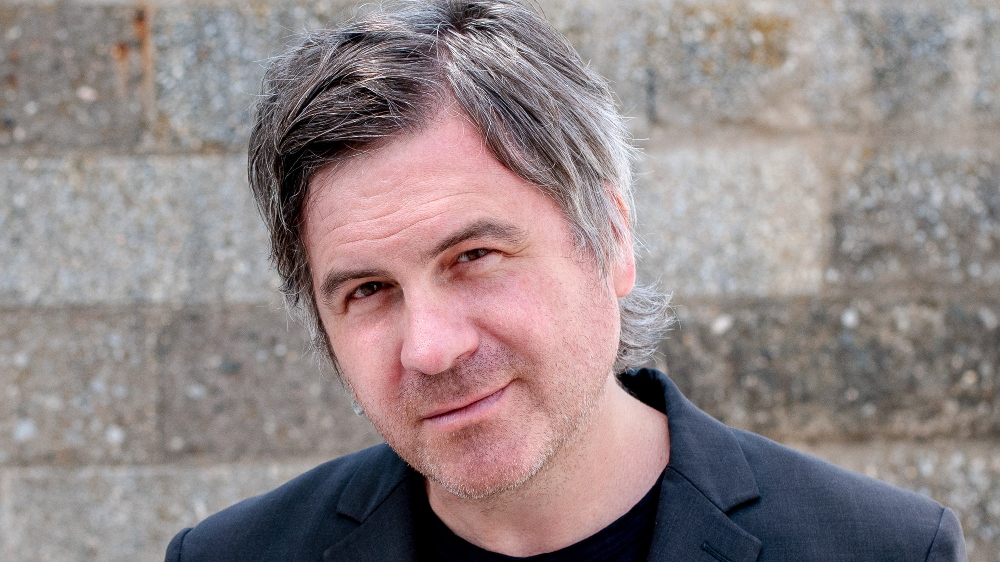
Below the Line: When you were a little kid, what kind of music did you listen to?
David Klotz: Let’s see. All kinds of music, really. My parents were never big music people, so I got into music a little bit later. The first record I bought was the Human League song, “(Keep Feeling) Fascination.” I remember taking it up to the counter — I was 11 years old — and my mom going up and saying to the person behind the counter at the record store in the mall, ‘There’s no bad language in this, right?’ I was so embarrassed. I loved a lot of pop music, and then as I got older, I loved film scores. I discovered how amazing John Williams was, and all the stuff he did.
BTL: When did you start truly paying attention to music in movies and TV shows?
Klotz: As I started loving films more and more, I started noticing how great the music was in movies, specifically Star Wars and Raiders of the Lost Ark. From there, I discovered all sorts of things, like Vangelis with Blade Runner and Maurice Jarre with A Passage to India, as well as Ryan’s Daughter. I’d buy soundtracks and collect them on cassette and CD. I don’t know where they are anymore.
BTL: At its best, what can music, be it score or songs, add to a show or movie? And on the other hand, how can they detract from them?
Klotz: Interesting. A good score for a film should help enhance and tell the story. The word underscore is a very good word for what it actually is and what it’s doing. You can watch a scene that could use music, and when you take it out, you can feel that it just doesn’t have the emotional impact. It could if some music was there scoring the moment and helping the characters with what they’re talking about. The flip side of that, from my own experience, is that I’ve worked on a number of projects over the years where sometimes filmmakers don’t quite understand what an underscore should do, and they want to end up putting more music into a scene than is needed, or putting score into a scene that’s doesn’t need it. That does a disservice to the show and the story.
It’s hard to pinpoint, after you’ve done that and you’ve sort of gone down that road a bit with working on the film, why something doesn’t feel right and what’s not working. In some ways, you get to the point where you start stripping the music out of a whole scene, and then you realize, ‘That works great.’ As a music editor, when I’m working with composers and the filmmakers, we’ve tried to figure out where music should start and stop. That’s very crucial. Usually, you’ll start a cue in one scene, and it’ll go to the end of the scene. At the end of the scene, the next scene might not have music. As you get to working and watching, you realize, ‘Oh, wait. This scene should actually play dry, and the next scene should have music.’ Those are the things we try to figure out as early as possible. We just start and stop, because it makes a difference to what you’re trying to tell.
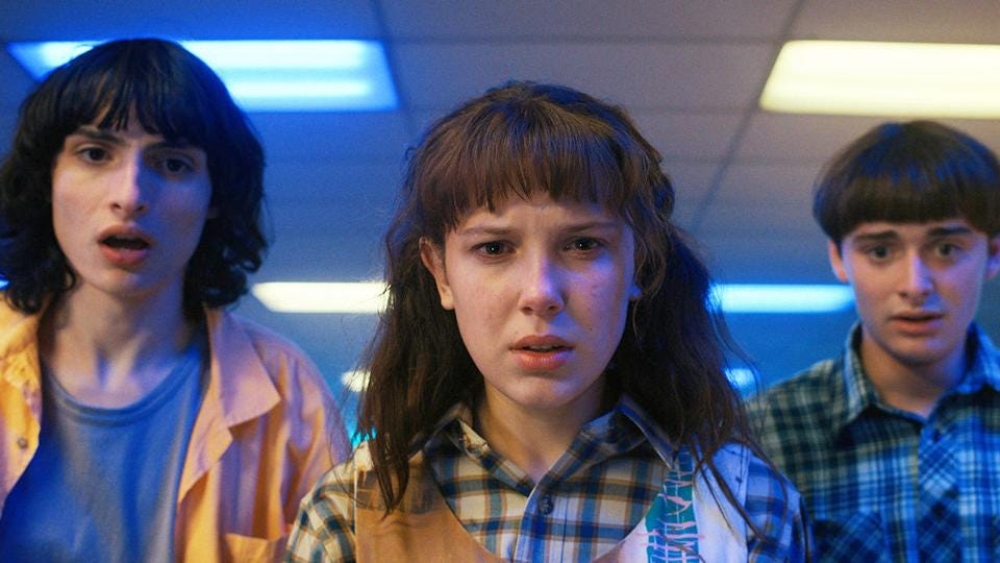
BTL: How do you define your job? What is a music editor?
Klotz: As a music editor, I’ve worn various hats over the years. Different projects require different skill sets. I like to think that I’m part of the music team and part of the process that makes the music come together in the end. I’m there when we’re talking about what we’re going to do with the music. “What kind of music is it going to be? Are we going to get a song? Are we going to get a piece of a score, or are we going to hire a composer? Are we going to hire a band to write songs?” Being a part of that process, and then shepherding it as it’s coming together, for me, feels like I’m making sure it all works in the end. In the eleventh hour, you’re thinking, “Is the music working? Is it helping? What’s not working?”
BTL: How did you first connect with Stranger Things?
Klotz: A great producer on Stranger Things is a guy named Rand Geiger. I worked with him briefly on American Crime Story. He left that show to go work on Stranger Things. After he left, he called and said, ‘Hey, I’m doing this show called Stranger Things.’ He described what it was about, and he’s like, ‘Do you want to come work on it?’ I immediately said “yes,” because the way he described it sounded amazing.
The first thing I thought of was that J.J. Abrams film, Super 8. It sounded like that, in a series form. One of the first things that they told me was that they were hiring this band from Austin, Texas, called Survive. It’s this synth band, and they were going to be the composers. I’ve had this experience working with first-time composers in the past on a few projects, where they haven’t been traditional composers. Rand thought that would be a good fit, for me to bring in those guys. That’s when I met Kyle [Dixon] and Michael [Stein], maybe a month or so later.
BTL: Other than straight-up musicals, few productions are as reliant on music as Stranger Things. Take me through collaborating with the Duffer brothers, and with Kyle and Michael. What are those conversations like?
Klotz: There’s so much music, and it’s great to see that filmmakers like the Duffer brothers recognize that with a show like Stranger Things, music is a big part of the storytelling. That’s fun for me, and it’s fun for everybody involved because it makes my job way more interesting, exciting, and challenging. A year ago, when they were filming the Metallica song on camera and they needed an edit done for production, that was tricky because I had not seen anything, or even read the script, but I got the stems from Metallica songs.
It was fun to take all their tracks and create something that we were going to film to, but then we had to think ahead and say, ‘We can’t lock ourselves into that. We’ve got to be careful about what we’re going to cut together because, down the road, the scene that they’re going to film for two minutes is going to get down to one minute.’ There’s that collaboration very early on with the Duffer brothers, before I was even officially on.
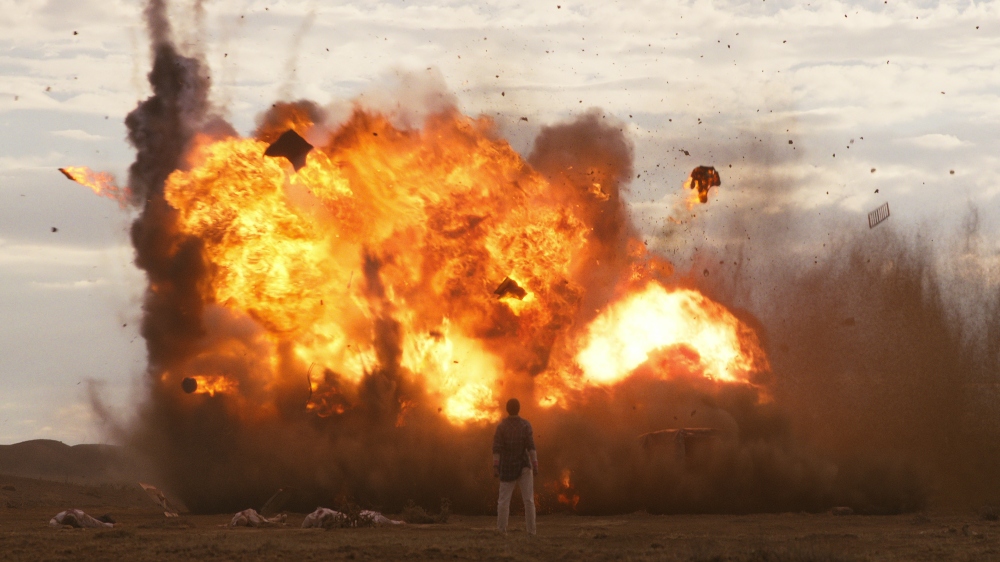
BTL: Meanwhile, nearly all seven minutes of “Master of Puppets” made it into the episode…
Klotz: Exactly. That [was] crazy. But another collaboration early on, as you know, was with the composers. Kyle and Michael have the most insane amount of music they need to create. Once a scene is shot and assembled, they try to start getting them to look at stuff early. Even as far as almost a year early they had some of the big set piece sequences to work on. Even at that point, I’m also involved in going through their library and trying things that might work. We’ve amassed a massive library, and they’re always generating another library of new cues that we’re pulling from. The picture editors are doing a lot of that, pulling from the new library, and they’re cutting stuff in.
I have to say, what’s great about Stranger Things is that the Duffer brothers are very involved in the music. They have access to the library and they’re listening to stuff. They’ll shoot me a text saying, ‘Hey, why don’t you try this track for this scene?’ Even in the eleventh hour, when we’re supposed to be finishing the show, they’ll say, ‘You know what? This cue just isn’t working right. The visual effects came in, and we need something bigger. We’ll try and find something.’ They’re actively listening. It’s a good musical collaboration, and everyone gets it.
BTL: Just clarify, you’re not finding the songs. That falls to Nora Felder, right?
Klotz: [Yeah], she’s great, and she comes armed with a great wealth of resources. We know what year the show is going to be set in. She’s found a great body of songs that came out in the year, so we stick to that. The Duffer brothers also do their own research and pick a lot of the songs. That’s their domain. I would just find out, ‘Hey, we shot a version of The NeverEnding Story live on the set. Let’s make it work.’
BTL: You were not nominated for an Emmy in 2021, after nine straight nominations and several wins. How big were your therapy bills? How did you handle that?
Klotz: [Laughs] It completely went right by and I didn’t even think about it. I was nominated this year, and I’m going to miss them because I’ll be in Italy. I’m going to be on a trip, so I won’t go two years in a row to the Emmys.
BTL: The episode you’re nominated for this year is “Chapter Seven: Massacre at Hawkins Lab.” It was more of a movie than an episode since it clocked in at 2 hours and 20 minutes-plus. It had snippets of “Running Up That Hill,” which was used often this past season. “Dream a Little Dream” was turned into a menacing song. “Prophecies” by Philip Glass was beautifully utilized, and then you had quite a bit of orchestral music in there as well. What were the challenges for you in that specific episode?
Klotz: Just the way you described it, it made my head spin, because it was challenging. There were a lot of moving parts coming from all directions. That was a tough episode because we were trying to hit a deadline to meet the air date and we had a score that was being written up to the last minute. The most challenging aspect of that episode — and with Stranger Things in general — is that you get to the place where you almost feel like you’ve got everything together, and we’re almost done, then we get another picture turnover with all new visual effects updates. It messes things up, and you’ve got to find ways to make all this stuff work again, and land in the same spots. For that episode, that was really challenging.
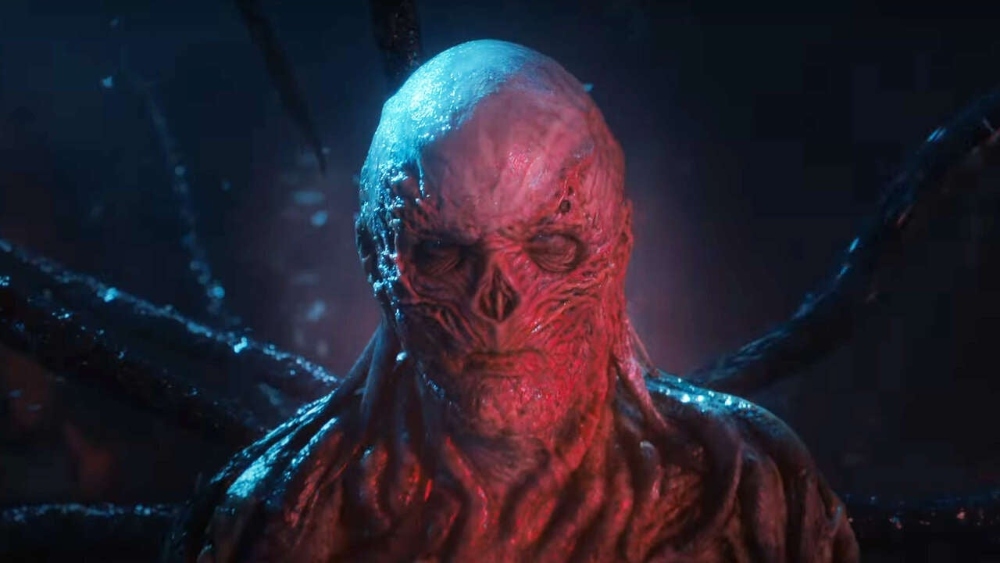
BTL: Who can you not do your job without?
Klotz: Well, I have a great answer for that. On Stranger Things, I worked with a music editor. We hired her late in the game when things got too busy, and I was crazy. Actually, not late in the game. She started earlier. Her name is Lena Glikson. She’s a fantastic music editor and saved the day so many times when we were overwhelmed. It’s great to have somebody as skilled as her jumping in, getting it, and helping us get through to the finish line at the end of Season 4.
BTL: How ready are you for next year to be the last year? Will it be hard to say goodbye?
Klotz: Yeah, it will [be hard. But] I need a break. I think I speak for everybody on the show when I say that. And we just have a few months off before we get back into that again.
BTL: What else are you working on?
Klotz: I’m currently working on the prequel to Game of Thrones, House of the Dragon. It starts airing on HBO on August 21. That’s pretty cool. It’s going to be great. This is a specifically interesting setup because everything is being done in the UK. The only people out here in L.A. are the composer and myself, so we’re working remotely. In that sense, it’s almost like a part-time show in a way. I’m not in the mix. I’m at the last step, which I’m used to being a part of.
We went to the premiere a couple of weeks ago here in L.A. I was watching the show for the first time in that context, and it was interesting because there’s a music editor in the UK who is doing an amazing job. It’s interesting to see, ‘Oh, they changed the thing that we did.’ It’s kind of weird. It’s a handoff, in a way, but it’s not as crazy-busy as Stranger Things was. So, I’m fine with that schedule right now.
Stranger Things 4 is now streaming on Netflix, while House of the Dragon premieres on HBO on Aug. 21.
https://www.youtube.com/watch?v=yQEondeGvKo





